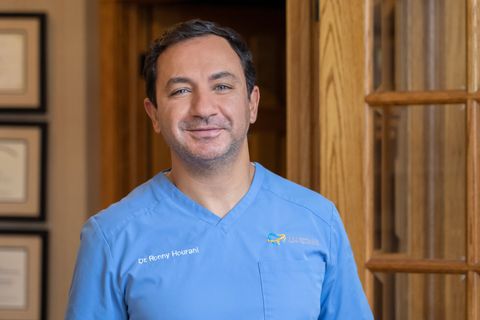Toothache Care in Tecumseh, MI
We Relieve Tooth Pain
A toothache is more than just the pain or discomfort in your mouth. It’s a signal from your body that something is wrong! From a simple piece of debris lodged in the tooth to severe damage like a fracture, we can help identify the cause of your toothache and provide you with solutions to bring relief.
Symptoms of a toothache differ for everyone. The pain can be sharp and occasional or pulsating and constant. You may only experience the pain when applying pressure to your tooth or it may happen no matter what you’re doing!
Toothaches can directly cause other symptoms in your mouth and body as well, including:
- Swelling near the tooth
- Headaches
- Fevers
Toothaches often start small and gradually worsen, so it’s important to contact Tecumseh Family Dental early on so we can treat the problem before it grows!
Procedure
The procedure for identifying and remedying a toothache varies based on your unique circumstances. In many cases, a simple toothache can be solved at home by simply rinsing or flossing to help dislodge debris that may be applying pressure between your teeth.
If you continue to experience your toothache, we can perform an exam to identify the root cause. Common causes for chronic or severe toothaches are:
Tooth Decay
On-going tooth decay is one of the leading causes of toothaches. If you’re experiencing chronic tooth decay with symptoms of a toothache, you may need a filling. After cleaning the decayed area, we will use a composite filling to restore integrity to your tooth and eliminate the cause of the toothache.
Broken or Fractured Tooth
A broken, fractured or displaced tooth is usually not a cause for alarm, as long as decisive, quick action is taken. If the tooth has been knocked out, try to place the tooth back in its socket while waiting to see your dentist.
First, rinse the mouth of any blood or other debris and place a cold cloth or compress on the cheek near the injury. This will keep down swelling.
If you cannot locate the tooth back in its socket, hold the dislocated tooth by the crown - not the root. Next, place it in a container of warm milk, saline or the victim's own saliva and keep it in the solution until you arrive at the emergency room or dentist's office.
For a fractured tooth, it is best to rinse with warm water and again, apply a cold pack or compress. Ibuprofen may be used to help keep down swelling.
If the tooth fracture is minor, the tooth can be sanded or if necessary, restored by the dentist if the pulp is not severely damaged.
If a child's primary tooth has been loosened by an injury or an emerging permanent tooth, try getting the child to gently bite down on an apple or piece of caramel; in some cases, the tooth will easily separate from the gum.


